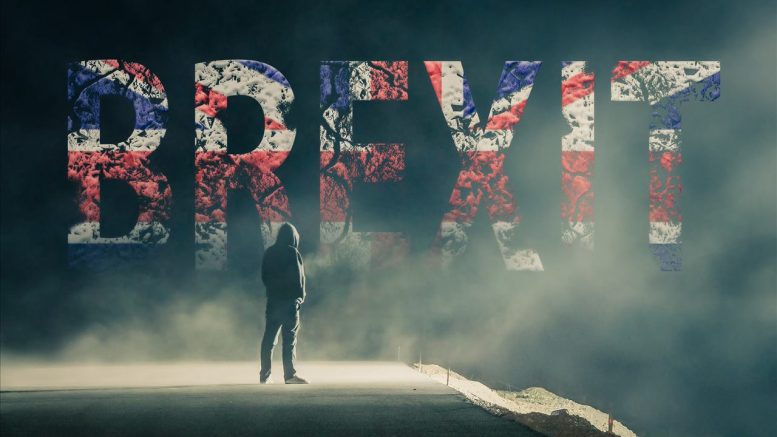The effects on the United Kingdom are a slow burn but gradually the full extent of its economic damage is becoming alarmingly clear and is now rekindling political debate, writes Murray Ritchie.
The UK’s Europhobes just don’t want to know. Every time another fisherman complains on television that his business is being ruined or a financial services business moves more staff into the European Union from the UK, the British government and its devious prime minister shrug. Teething problems are to be expected, is the refrain.
Bumps on the road was the phrase used by Nigel Farage, Europhobe-in-chief, and the government of Boris Johnson is never about to disagree. The latest figure for transfers of services assets to the Continent is £1.3 trillion, according to the accountancy firm EY’s latest Brexit tracker. Some bump.
It is an extraordinary display of hiding from responsibility and reality. Perhaps ministers simply don’t know what to do beyond muttering about grace periods getting us over the worst and that everything will be fine in the end.
They count on a disillusioned public seemingly accepting with a shrug that Brexit was a mistake but one that’s done and it’s too late to do much about it. That seems rather worryingly to be the view of Britain’s unusually timid opposition Labour Party whose leader is not exactly tormenting Boris Johnson for his failures.
British politics these days is a sad tale of ever-deepening division. Danger to the peace process in Ireland, growing frustration and fear in England at Brexit’s carnage, increasing nationalism in Wales, and volatility in Scotland where the polls suggest a march to independence and an eventual return to the EU.
When it was revealed by the Office for National Statistics that British exports to the EU had collapsed to just under 60 per cent after January 1, the scale of the damage became horribly apparent, sending shockwaves through much of politics, the manufacturing industry, farming and fishing.
In most of the British pro-Brexit press, mainly encouraged by Eurosceptic proprietors, it was as if no-one had really noticed. Those that might have done seemed not to care. Most right-wing tabloids ignore the true damage of Brexit or continue to see it as a political triumph over the hated EU. When Brexit should be an embarrassment or cause for regret or alarm there is a vow of silence in most newspapers.
There are exceptions, like London’s liberal Guardian and the leftish Daily Mirror and a couple of influential Scottish newspapers, otherwise Brexit and its disservice to the UK are given a free ride.
Fisheries are a good – or bad – example of Brexit gone wrong. Scotland’s fishing fleet might be small in terms of the UK, but it is a significant economic and political matter north of the Border which is the destination for 70 per cent of the UK catch.
Many fishermen, mainly on the east coast, backed Brexit and held fond notions of keeping out EU vessels and monopolising the total catch, selling it at a handy profit to the Continent. Well, as they say in these parts, they ken noo. It was never going to happen and the bitter lesson is now being driven home. Some fisheries businesses complain they have to pay up to £500,000 extra just to deal with the new export bureaucracy.
On the Scottish west coast, the story is little different. Fishermen there, specialising in shell fish catches and salmon farming, were less in favour of Brexit. This sector is now strangled by new paperwork demands, leaving exports to the major markets of Spain, France and Portugal rotting in lorries delayed at borders.
Meat exports are in crisis. The British Meat Processors Association reports possibly losing up to 50 per cent of its export business. It says Boris Johnson’s protestations that this is merely “teething trouble” are no longer credible when goods are delayed to the point of being unsaleable or simply lost in transit.
When Brexit should be an embarrassment or cause for regret or alarm there is a vow of silence in most newspapers.
The time must come when this economic disaster is going to force its way into public awareness and so into the politics of Britain which are in some turmoil.
Northern Ireland is the most sinister Brexit danger as tension grows at the border with the Republic. A return to the dreadful times is threatened by Loyalist paramilitaries for whom peace and prosperity are an abstract. Rioting is back on the streets of Belfast.
In England a movement is growing, led by figures that include Lord Michael Heseltine and former Tory MP Dominic Grieve, both arch Remainers, to begin the long and difficult journey back to the EU. “We shall rebuild brick by brick,” vowed Heseltine.
In Scotland the Holyrood parliament has broken up for a general election next month where Brexit and Scotland’s ignored 62 per cent majority for Remain will be passionately debated. The ruling Scottish National Party are famously pro-EU and have been assured by several significant figures in Brussels in recent times that a resumption of membership will be less complicated than for other applicants and that Scotland will be welcomed back. Meanwhile Brexit supporters in Scotland have gone uncharacteristically quiet.
Scotland’s electoral decision next month is, of course, crucial to the survival of the UK’s parliamentary union. Signs are the SNP will win comfortably, possibly with an overall majority, despite internal splits after 14 years in power. Almost certainly there will be a majority for independence with the Greens prepared to back the SNP.
At that point the pressure on First Minister Nicola Sturgeon to move to a second independence referendum will be intense. Expect indyref2 within two and a half years, she promises. Brexit’s continuing drag on the UK’s economy will hardly help the Unionist cause.
British politics these days is a sad tale of ever-deepening division. Danger to the peace process in Ireland, growing frustration and fear in England at Brexit’s carnage, increasing nationalism in Wales, and volatility in Scotland where the polls suggest a march to independence and an eventual return to the EU.
Brexit’s continuing drag on the UK’s economy will hardly help the Unionist cause.
It is fair to describe the UK government’s response to all this so far as pathetic. The Conservatives say they are stepping up the campaign to save the Union from disintegration but so far, their cunning plan has amounted to nothing more than ministers appearing at every televised opportunity in front of the Union Jack.
If flag waving is the best the UK government can offer, the collapse of the parliamentary union will only gather pace. At some point UK ministers and Boris Johnson, the great prime ministerial dodger of truth, will be forced by political reality to face the mess of Brexit’s economic and political sabotage. Simply ignoring this historic mistake and relying on a compliant media won’t wash for much longer. And then what?
Talk of a return to the single market sooner than we might have expected, anyone?

Headline Photo Credit: Raggedstone/Shutterstock.com




